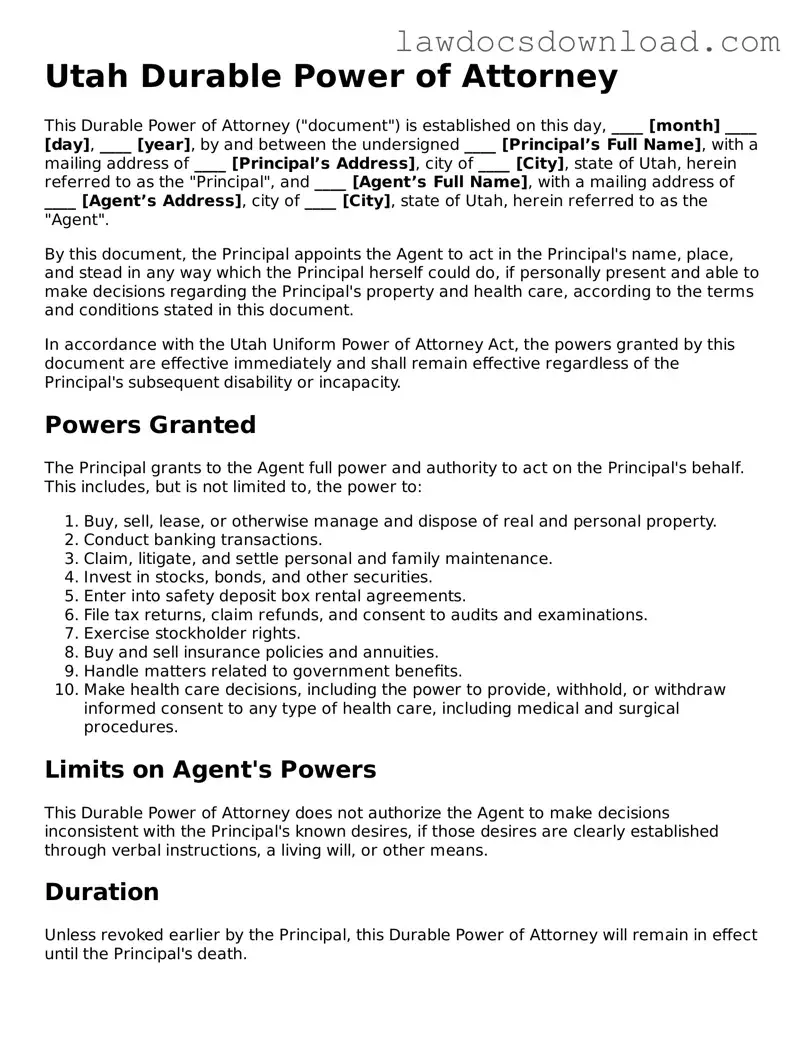Legal Utah Durable Power of Attorney Form
A Durable Power of Attorney form in Utah is a critical legal document that allows an individual to appoint another person, known as an agent, to make decisions on their behalf, especially during times when they're incapacitated and unable to do so themselves. It's specifically designed to be effective even if the individual becomes physically or mentally incapacitated. This important feature makes it an indispensable tool for planning one's future medical and financial affairs.
Launch Durable Power of Attorney Editor Here

Legal Utah Durable Power of Attorney Form
Launch Durable Power of Attorney Editor Here

Launch Durable Power of Attorney Editor Here
or
Free Durable Power of Attorney
Get this form done in minutes
Complete your Durable Power of Attorney online and download the final PDF.